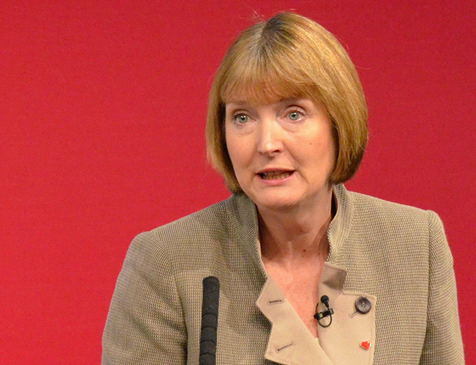
The UK Labour Party’s favourite attack line against the Conservatives at the moment is not dissimilar to the Democrats’ usual anti-Republican line: the suggestion that the Tories have a “problem” with women.
At Prime Minister’s Questions (PMQs) earlier this month, Ed Miliband accused David Cameron of running his government “like an old boys’ network”, claiming that the Tory party was was “going backwards” and “failing women”. Miliband had carefully stage-managed the women on his own side so that several were in view of the television cameras directly behind him.
Unfortunately for the PM, on that day the entire government front bench was male. It was fine politicking from the Labour leader, but just how true is it that the Tories have a women problem?
Following the 2010 election there were 48 female Conservative MPs in the House of Commons, significantly fewer than the 81 female Labour MPs. The Labour Party argues that this is evidence that they have a far better attitude to women than the Tories; that despite the fact the Tories have more MPs overall, Labour still has more women.
Yet many of those 81 Labour women won their seats only because of the party’s all-women shortlists policy, which bars male candidates from contesting certain seats. This positive discrimination effectively means Labour are denying women the opportunity to be selected because of their merit.
Indeed in open contests, where both men and women are allowed to run, at one stage last year 17 of the 18 nominations in open contests had been won by men. When Labour is free to choose between a male and female candidate, it invariably chooses the man. The party therefore prevents stronger male candidates from winning seats simply to gerrymander its gender equality record. That sounds a lot like Labour has a women problem.
Since 2010, four Tory women have announced they would stand down: Lorraine Fulbrook, Jessica Lee and Laura Sandys in 2015 and Louise Mensch with immediate effect. Anne McIntosh implied she was deselected by sexist party members, an allegation that does not stand up to scrutiny. These women quit for a variety of personal and professional reasons. There is no serious evidence that they went for any reasons relating to their sex.
Since 2010, nine Labour women have announced they would stand down: Ann Clwyd, Dawn Primarolo, Tessa Jowell, Glenda Jackson, Joan Ruddock, Anne McGuire, Joan Walley, Meg Munn and Hazel Blears.
This gives the Conservatives a female casualty rate of 10.4 percent, and Labour a female casualty rate of 11.1 percent. Does this mean it is actually Labour that has the women problem?
Labour argues that many of their departing women are long parliamentary servants coming to the end of their careers, while the Tory women were new to politics. This is true, yet still offers no evidence that their sex was a factor in them leaving. It is possible that 2010 intake Tory women decided parliament wasn’t for them because of their sex, but crucially there is no causal link and no evidence to justify this assertion.
There may be no actual hard evidence of a Tory women problem, though there is hard evidence of Labour using women as political props to attack their opponents. By using all-women shortlists the party is rigging its own gender balance not on merit but on numbers alone, then using the women it elected via a fix to criticise the Conservatives.
It is telling that Labour allowed Jack Dromey, the husband of its deputy leader and chief equality campaigner Harriet Harman, to be selected in a seat originally intended for an all-women shortlist, despite him apparently being a man.
Just how seriously does the party take gender equality if it is willing to suspend its own gender equality rules to parachute in a male candidate with close links to the leadership?
Finally, back to that now infamous Prime Minister’s Questions. Ed Miliband and his spinners instructed the female members of the Shadow Cabinet to sit behind the party leader, not because of their merit, rather so that they would be in the glare of the cameras when Miliband accused the Tories of having a women problem.
On that day, Rachel Reeves, Caroline Flint, Yvette Cooper and Angela Eagle were not there because of their performances at their respective briefs, but simply so their leader could use their sex to attack his political opponents. Which when you think about it begs the question: who really has the problem with women?

COMMENTS
Please let us know if you're having issues with commenting.